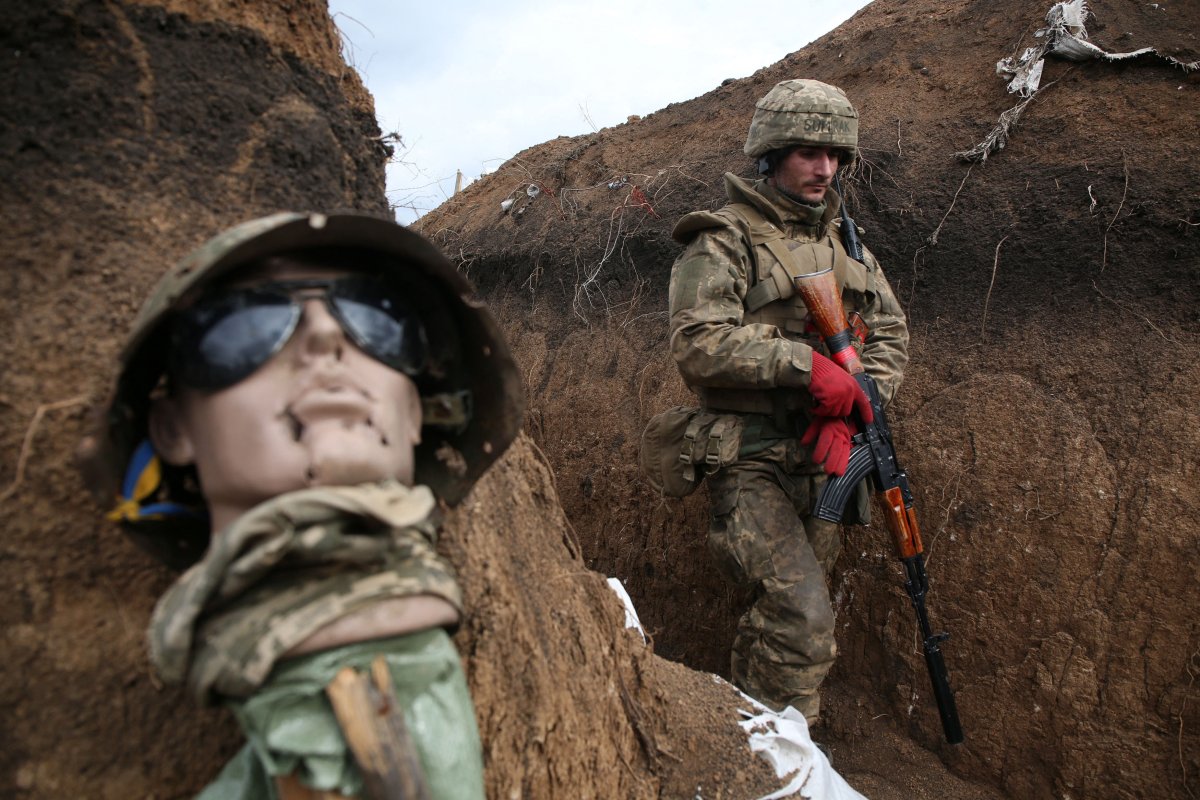Now that President Joe Biden has blown past the awkwardness over the Hunter Biden scandal by doing it the Ukrainian way—that is, by ignoring it—he can focus on how Ukraine can be of value to the U.S.
This is of paramount concern to America, given the observation first made in the fourth century B.C. that "the enemy of my enemy is my friend." Ukraine is under constant threat from what the Biden administration sees as our No. 1 adversary: Russia. They share a 1,200-mile-long border, and Ukraine is an obstinate obstacle to Russian President Vladimir Putin's designs on parts of the old Soviet empire.
In 2014, Putin dispatched Russian troops to seize control of Ukraine's Crimea peninsula, with the support of Russian-speaking locals. The Obama administration responded to this forcible annexation by admonishing the Russian leader and shipping the Ukrainians blankets rather than weapons.
Then-President Donald Trump—uncouth patsy and playmate of the Russians, the media kept telling us—took office, and suddenly the U.S. was selling anti-tank missiles to Ukraine. As a transcript of the final presidential debate on Oct. 22, 2020, showed, President Trump described the stark contrast in his inimitable way:
"I sold—while he [Obama] was selling pillows and sheets—I sold tank busters to Ukraine. There has been nobody tougher on Russia than Donald Trump. And I'll tell you, they were so bad. They took over the, the submarine port. You remember that very well during your term, during you and Barack Obama. They took over a big part of what should have been Ukraine. You handed it to them."
Very soon, our new president may have to decide which way to go: guns or butter? This is more than hypothetical. In March, Russia began amassing more than a hundred thousand troops along Ukraine's eastern border. It also sent warships to the Black Sea, which borders Ukraine to the south. The State Department delivered a tepid response: "We're absolutely concerned by recent escalations of Russian aggressive and provocative actions in eastern Ukraine."

By late April, the Russian troops began withdrawing, their message having been delivered: Don't mess with us, we can arrive at any time.
Ukraine has lost Crimea with zero signs of repatriation. Farther up the eastern border in the Donbas region, two separate "proto-states" have declared their independence: "DNR" and "LNR," the Donetsk People's Republic and the Luhansk People's Republic. Russia has been instrumental in their genesis, and has been egging them on.
Russia already wields influence over Armenia, and it is gaining sway in neighboring Azerbaijan. Russia sells arms to both, yet it just mediated a ceasefire of hostilities between the two nations over who controls the Nagorno-Karabakh region. It is populated with ethnic Armenians, but belongs to Azerbaijan. The accord, of course, has Russian troops stationed there as supposed peacekeepers, extending the Russian shadow over both former satellites.
Vitaly Portnikov, a Ukrainian journalist and political commentator, warned that the Kremlin could try to station troops on Ukrainian soil in the Donbas, too. "The Kremlin will try to impose the same option on Ukraine, namely 'direct negotiations' with Moscow's puppets in the 'DNR/LNR' and the deployment of Russian 'peacekeepers' in the Donbas," he wrote.
How to help Ukraine? Certainly every sovereign nation should have the right and the resources to defend itself, especially those nations that have allied with America. Rather than ship pallets of new lethal hardware to Ukraine—or in addition to doing that—we could gain by helping Ukraine economically.
The high-potential nation has been held back by an inability to restructure and rid itself of an unstable and often illusory rule of law, ingrained and inefficient Soviet state habits and an old crony system of oligarchs who dominate key economic sectors without regard for Ukraine's economy. Many Ukrainians seems to focus on survival at all costs—and have lost their sense of not only national pride, but also national identity.
The U.S. has bankers, consultants and venture investors who are exceptionally skilled at restructuring and streamlining business operations, and investing in profitable ventures that make the world a better place to live in. They could help Ukraine build its economy into the region's growth leader, in exchange for clear-cut empirically verifiable reforms and an overhaul of its sclerotic system of oligarchs and oligopolies.
... And thereby change the focus from guns or butter to carrot and stick.
Yuri Vanetik is an attorney, investor, UC Hastings Trustee and Lincoln Fellow at the Claremont Institute.
The views expressed in this article are the writer's own.
Uncommon Knowledge
Newsweek is committed to challenging conventional wisdom and finding connections in the search for common ground.
Newsweek is committed to challenging conventional wisdom and finding connections in the search for common ground.
About the writer
To read how Newsweek uses AI as a newsroom tool, Click here.








